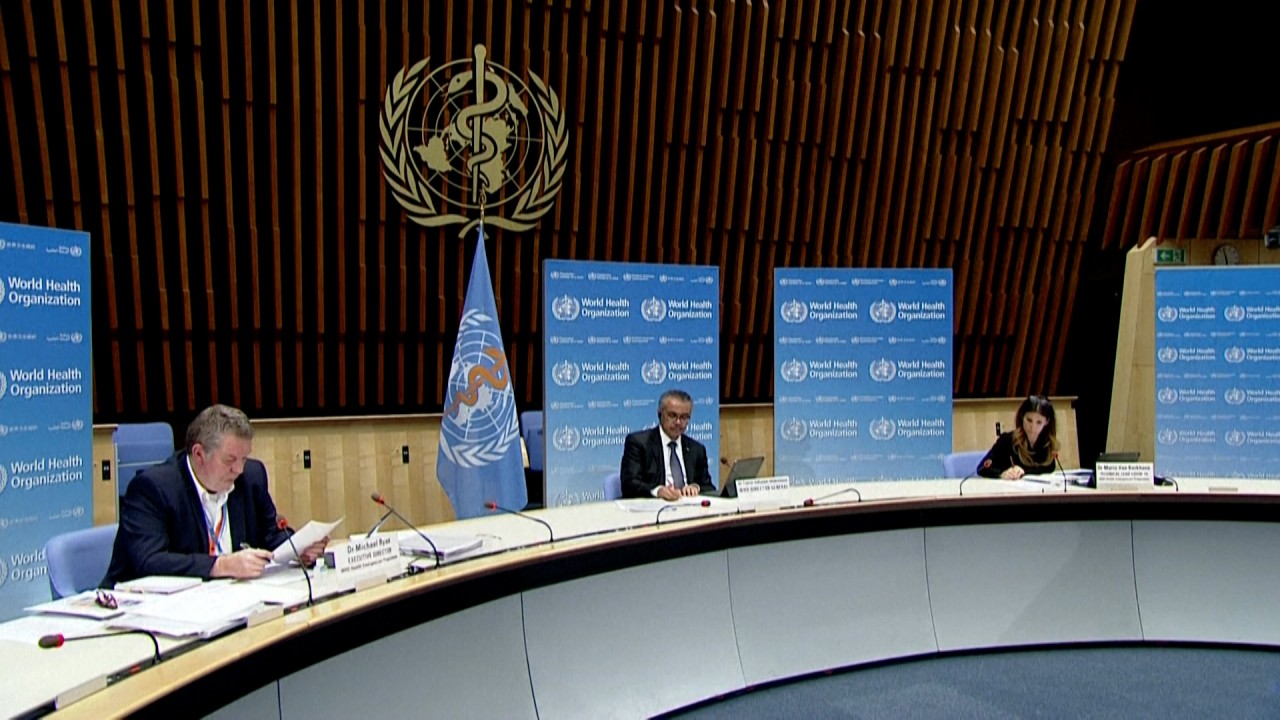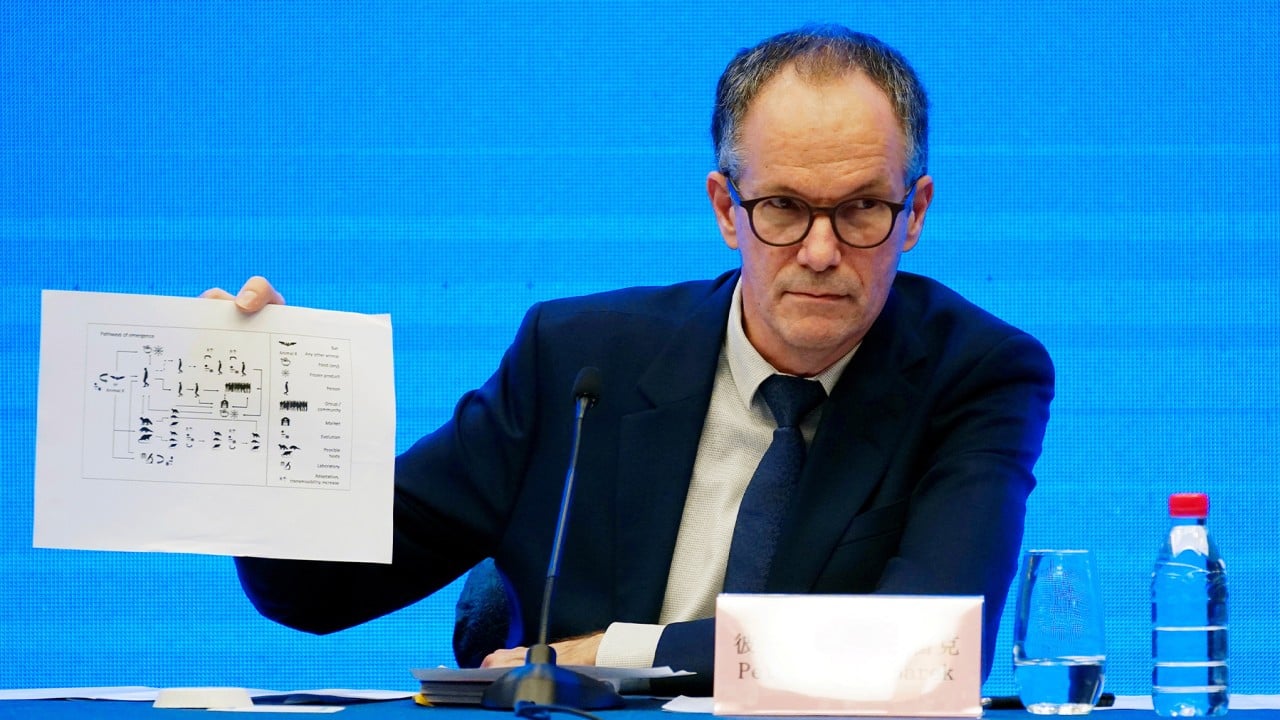
Coronavirus: US and China should join forces to find the animal host, top Chinese scientists say
- Collaboration is also needed to speed vaccine manufacture and distribution, they add
- Call comes after US rejected findings from World Health Organization mission to Wuhan because China did not offer ‘requisite transparency’
China and the United States should work together to find the animal host of the coronavirus that causes Covid-19, two top Chinese scientists said on Monday.
Speaking at a webinar held by the Brookings Institution, George Gao Fu, director of China’s Centre for Disease Control and Prevention (CDC), and Zhong Nanshan, China’s top respiratory expert, also called for the two countries to cooperate in accelerating the manufacture and distribution of vaccines, the better to shorten the time for the world to reach herd immunity.
“We thought there might be a reservoir host,” Gao said, using the scientific term for an animal that sustains a parasite virus and is a source of infection of humans.
Clues to Covid-19 virus family found in Cambodia lab freezer, Thai drain pipe
“But after one year of hard work, we have not found any reservoir host. Also, we cannot find any intermediate host. That is why we have to come to the science on the origin of the virus,” he added.
“For that, China and the US need to work together.”
The calls for China-US collaboration by the two Chinese government-affiliated scientists followed a World Health Organization (WHO) mission to Wuhan to search for the origin of Sars-CoV-2, the virus that causes Covid-19, in February.

01:29
‘Unrealistic’ to expect Covid-19 crisis to be over in 2021, WHO official says
The US, however, said it would not accept the WHO findings without independently verifying them using its own intelligence and conferring with allies. State Department spokesman Ned Price said that China had not offered the “requisite transparency” the US sought.
Zhong, a top respiratory doctor advising the Chinese government, said he hoped that collaborations like the one between Guangzhou’s Sun Yat-sen University and Ian Lipkin, an epidemiologist at Columbia University, could help identify the animal host.
“If we can stop this transmission route [by identifying the animal reservoir], that would [help prevent] the next epidemic” from the same coronavirus, Zhong said.

01:56
WHO ends Covid-19 mission in Wuhan, says lab leak ‘extremely unlikely’
Lipkin, who has a reputation as a virus hunter, travelled to China in February last year to investigate the animal host of Sars-CoV-2. In an interview with the South China Morning Post that March, Zhong said the project was hit by politicisation by the Trump administration.
Lipkin, who also spoke at the webinar, said he was hopeful that the Biden administration would make US-China science collaborations easier; as one example, he cited his own need to gain export licences for the tools required for the project with Sun Yat-sen University.
“With this new administration in place, I am confident we are better positioned to work together, as we have in the past,” he said.

Gao said Washington and Beijing ought to use a public health collaboration as a way of resetting their relationship, as the area is an easier one to start with than some others.
The two countries could work together to contribute more vaccines to the Covax Facility, the global distribution mechanism led by WHO, to ensure equal vaccine access for developing countries, he said.
Zhong said that US and China could also cooperate in researching vaccines that target new Covid-19 variants.
First vaccines under Covax Facility delivered to Ghana
“We should speed up the production of all vaccines, and prepare new kinds of vaccines which are sensitive to variants. It is important for us to cooperate because containment cannot last too long,” he said. “We really need to reopen and return to normal life.”
Zhong said vaccination in China was still trailing that in many Western countries. So far, only 3.56 doses have been administered to every 100 people, he said, adding that China is working to increase that rate to 40 doses administered to every 100 people by the end of June.

Wu Zunyou, an epidemiologist with China’s CDC, said that a freeing up of US-China travel should be considered when the US reaches herd immunity through vaccination.
However, the scientists said, it will be difficult to eradicate Covid-19, which – even after mass vaccinations are achieved – might return from time to time like the flu.
“My experience with coronavirus is that it is very difficult to eradicate, it is going to be with us for a long time to come and like the flu, we are going to see less and less severe diseases,” Lipkin said.
Gao said that he believed the situation would be relatively relieved by mid-2022. “In my opinion, we can never be as normal as before,” he said, adding that “we can get ‘approximately’ normal by the summer next year”.

